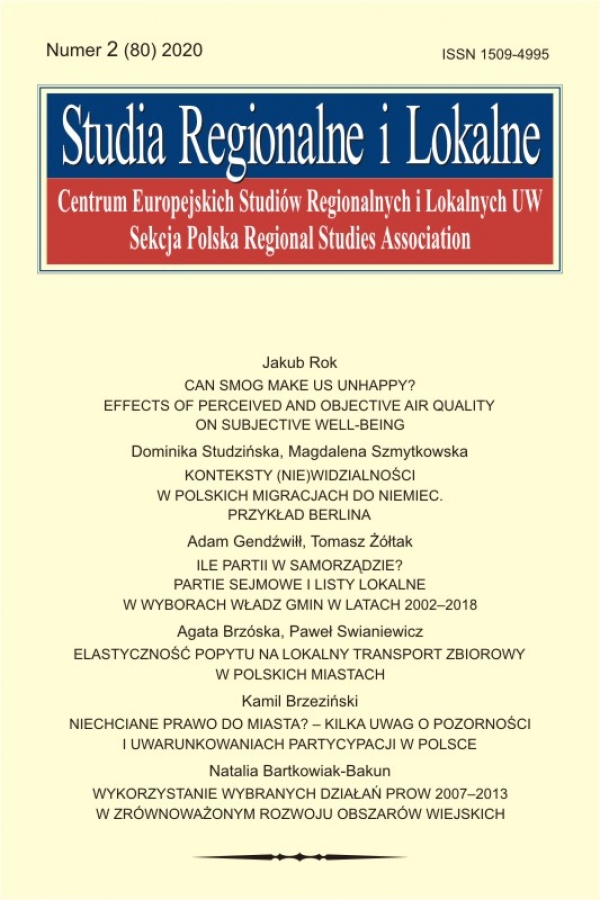Published in
2(80)/2020

- Jakub RokCan Smog Make Us Unhappy? Effects of Perceived and Objective Air Quality on Subjective Well-being[more]
- Dominika Studzińska, Magdalena SzmytkowskaDimensions of (in)visibility in the context of Polish migration to Germany. The case of Berlin[more]
- Adam Gendźwiłł, Tomasz ŻółtakHow many parties are there in local governments? Parliamentary parties and local lists in municipal elections, 2002–2018[more]
- Agata Brzóska, Paweł SwianiewiczDemand elasticity of local public transport in Polish cities[more]
- Kamil BrzezińskiAn unwanted right to the city? – remarks on alleged participation in Poland and its determinants[more]
- Natalia Bartkowiak-BakunApplication of selected measures of the Rural Areas Development Programme for 2007–2013 in the context of sustainable rural development[more]


